 The first stages of life can be a miss leading time in our lives. We start off as infants vulnerable in every way. The tiniest event can help shape the way we are. I like to believe that most people today follow the biopsychosocial model when it comes to treating youths. They are so fragile that we forget, the closest people who communicate with us every day are the biggest influence. I see this everyday as a mental health therapist. The greatest environment we can grow up in is a nurturing environment. Yeah that may sound cliché about facilitating healthy growth but it’s the truth. The most underrated environmental item in a young person’s life, is their parents. A good amount of non-mental health professionals I have met think that it is just the food, shelter, and toys that create healthy growth. However, imagine yourself standing there all two feet of you looking up at these gigantic things. What are they, they can reach my blanket, they can get my Elmo, OH MY GOODNESS they can get my food! Reading these you may be thinking, yeah these are obvious necessities that every parent would get for their child. I see far too many times that these parents are not getting what the child needs. An Elmo is not just an Elmo for a child. It is his or her warmth, safety, and companion. Think of having your loved one right in front of your eyes, not being able to touch or communicate with them. The same thing is happening when these children are not getting their companion, a.k.a elmo. They are completely distressed, wondering when they will see their loved one again. This idea is activating the youths stress, yearning to feel some type of relief. Only until the parent facilitates the nurture will the youth constricted brain grow healthy. Am I saying give the child whatever he or she wants, not necessarily. Do not panic now parents, if you can’t get your children that Elmo or a doll it is ok. I stress all the time when talking to parents, just be there for them. You are their giants the Elmo they need. Letting them use their imagination is the best healthy growth that they can get. Children are the most social people you can interact with. They take everything into account when they directly or indirectly interact. What is the one thing that is constantly around them that they are absorbing, the parents verbal and body language. I can’t tell you how many times when I am in a home giving therapy when just then in the other room, I hear the parents yelling at the other sibling. What ya know the issue that I am working on with my client, is his or her anger issues. Gee whiz I wonder where they get that from. At this point I would take the parents aside and teach them ways they can verbally interact with their children for responses that are appropriate. Naturally the next week they would come up to me with, “It didn’t work.” Yeah of course it didn’t work, even though the child’s brain neurons are connecting at a lightning speed doesn’t implement that its locked in with one try. It takes time, you giants must be patient with your little ones. The nurtured language is happening consciously but mostly subconsciously. If you keep it going change will happen. The youths will remember you familiar giants in more ways than you think.
1 Comment
When seeing someone on the street and talking to themselves people are often scared. In some cases, people will even make fun of these vulnerable people. The population I am speaking about is schizophrenics. These diagnoses can be very scary especially for someone who has not been around this illness before. Hallucinations can be different throughout the populations such as visual, olfactory (smell), and auditory hallucinations. Some other symptoms include disorganized speech and catatonic behavior . Catatonic behavior which is excited bodily movement or rigid body movement. Yeah not fun when you see it. All of them can be difficult in their own way. I say difficult because not all hallucinations are scary. I have met some people who simply just hear a little girl talking to them making jokes. This hallucination resulted in them laughing at inappropriate and well after he told some jokes the little girl would say, well dam it was to funny not to laugh. There was one woman on the psychiatric unit who saw colors and loved to go to art everyday so she can show her therapist what she was seeing. In some cases, auditory and visual hallucinations are degrading and horrifying. These hallucinations are unfortunately the ones that people here about the most. Listen to this hour clip of auditory hallucinations. To get the best effect put ear buds in and close your eyes. I challenge you one step further to walk around and try to talk to people while listening to this recording. How long did you make it one minute, ten minutes, thirty minutes, how about an hour? I only made it through about twelve minutes of the video. I just couldn’t handle the lady telling me that people thought I was worthless, and we need to go “get someone.” If you made it half way or the entire video, then I tip my hat off to you lady and gents. Living day to day like that has to be torture in itself. I hope some people went above and beyond going to talk to people while having the simulator in their ears. I tried to have a dialogue with myself, I had to turn it off. Now you can see why it is so difficult for people to live “normal” lifestyles with schizophrenia. With medications and therapy, a regular lifestyle can take place but just look how difficult it can be to maintain. Especially with one or multiple people telling you not to take your medications because its poison. Not just the internal factors but how about external factors. I cant tell you how many times police officers or people who just don’t want to be bothered give people with schizophrenia a hard time. First hand witness of a person with schizophrenic declining of basic life skills is heart breaking. Just imagine one day your loved one is completely fine, waking up to find them hallucinating. You look into their eyes, the souls mirror, and realize this is not the person I know. The video is hoping to make this diagnoses somewhat understandable and realize that it isn’t a choice to hear, see, feels, or smell these things. How hard it is to maintain a lifestyle when the hallucinations are at their worse. In hope that when you see someone struggling you can call the proper authorities to help them get back on track. Please watch this video of Cecilia McGough an astrophysicist who discovered she had schizophrenia when she was in high school. She's an amazing woman with many accomplishments because people gave her a shot through empathy.  Driving through the world with no map is difficult. Imagine yourself getting into your car grabbing the steering wheel and looking out through the front window. You have a destination but look around your car realizing, there is no map or gps. You start the engine with a destination in mind but the gps and map whereabouts are boiling in the back of your mind. “I just want someone, something to tell me where I am going!” How will I ever get to where I want to be?” This question in my experience as a therapist is not uncommon. I like to think of myself and other therapist as silent navigators. Like a gps we have training to help a person navigate through their own problems. Take out the gps voice line, the navigation lines, and the estimated time of arrival number, bam you got yourself a bonafide therapist. Pump the breaks, one may think they are getting a gps to help through their psych but may be a shock when they start with therapy. It is one of client's biggest difficulties when they are in therapy. It brings us back to the same question before, “Just tell me where I need to go, to do, to be healthy.” Seeing the same client for a couple months or sometimes years has us therapist grinding our teeth holding ourselves back from blurting out what we think they need to manage their mental health. Even though we need to hold ourselves back from interpretation we have many experiments or tools in our pocket to help people navigate themselves. Experiments are different activities for people to try during the therapy meeting which eventually can be tools for future use. If there is a successful experiment the person can have an “Ah-Ha” moment. An "Ah-Ha" moment is when a person have self discovery about the situation. It is my favorite when someone actually says, "Ah-Ha." When the person gets the gratification from an experiment because they got to an “Ah-ha” moment their brain will remember that for next time they need help finding a solution. This is why we are like silent navigation systems. I think that from successful therapy meetings clients will remember how they felt from the navigation tools we help facilitate. Am I saying that in the future they will hear our voice when they have negative emotions or thoughts? No. I simply just want people to know that not every person can help them. They should see a trained professional who know how to use the tools appropriately for self-growth. If you went to a friend or family member and they suggested you to do something and it doesn’t lead you where you want to go, who knows how it will effect your relationship with them. Let us therapist be that help. If something doesn’t work and it results in clients hating our guts, its ok. We are prepared for it because like a regular gps we get yelled at to. Our training and experience have led us to a point where we won't give up until we find a way that works for you.  Coping in psychology is defined as how a person consciously invests strategies to help manage their stress. I have been experiencing more and more people wanting coping skills. Its is not an easy task. The definition seems simple but like everything in life it takes practice and self-exploration. When people find what is making them stressed, depressed, anxious, etc. they often ask the therapist, “Well how do I manage these issues?” If you and I get a good therapist the therapist will say, “I don’t know.” Trial and Error I know an answer, “I don’t know” is not desired by anyone in any situation. We as therapist are not the ones to give answers. The philosophy of therapy is to build an authentic relationship with the person. This authentic relationship will give the person his or her comfort, trust, confidence to be open about how they want to cope. The journey for a coping technique(s) may or may not be an easy one. Therefore, the therapist and client must be patient in the process. During this time of trial and error there may be difficult times. A common theme I see is frustration, which is understandable. After all, if a person has been surviving with whatever they are dealing with for a period, it is no wonder why they want a coping technique(s) in a hurry. They just want the feeling of what they have been surviving with to go. Take caution in the trial and error piece of finding a technique(s) and don’t get discouraged you can do this. Do not be afraid to ask for ideas from your support system and bring them to therapy. Your therapist can help guide you in self-discovery. Technique(s). Yes there is MILLIONS!!! I am writing Technique(s) often because it is not always just one technique that works for someone. During or after trial and error you may discover that there can be multiple technique(s)/strategies. People come in all the time during the trial and error stage of coping exploration and say, “Hey Joey I found out that when I have stress during work my squishy ball helps me out a lot, but when I am in a crowd my breathing technique work better.” In two different environment different techniques helped this person get through the day. In other situations, with other people it, is possible only one technique/strategy will work. For a couple of years, I had this one Veteran that would have trouble breathing when she was in public. The trouble breathing was due to social anxiety. She explained it has her chest becoming tight, getting tunnel vision, and her heart fluttering fast. In some situations, her anxiety was dangerously close developing into an anxiety attack. Later, she discovered that it just wasn’t in social situations but in all anxiety areas. We worked on recognizing her heart when anxiety was rising. When the sensation of her heart fluttering became noticeable she would stop and focus on breathing. Her breath gave her clarity to access the situation and discover what was giving her anxiety in the moment. While these strategies/technique(s) worked for these people there are millions of coping strategies. That is right MILLIONS!!!! When people hear coping strategies/techniques they think of conventional “cliché” coping techniques that were mentioned above. The stress balls, the breathing techniques, the meditation, etc. AGAIN NOT ALL SIZES FIT! Anything can be a coping strategy/technique(s). Reading is my personal favorite coping technique. Not my usual educational books about psychology but a good novel, or fictional book. It really helps me get my mind off things and just go somewhere else, submerging myself in an adventure I can’t have. Currently I am reading Red Sparrow trilogy. I think in another life I was a secret spy. Anyway, don’t give up you have your therapist and other support systems that are there for help. Stop the Coping Coping strategy/technique(s) should not be in replace of therapy. Think of coping like a healthier alternative to medications. It helps us get through the day, so we can live socially normal lives yes. However just because they can get us through a day does not mean the psych is completely healed. A person who uses breathing as a technique simply uses it to get a somatic response. Somatic meaning a body response from the psych. When the body starts to feel ok the anxiety gets pushed back into the parts of the psych. We need to continue to go a therapist with a new pocket of tools to discover the reason we need these coping skills. When we work on the issue that is making us use coping skills, eventually we will be healthy enough to not use the coping skills anymore. If you complete the cycle of change and find that the coping skill still has a somatic response use it. At this point though if you are using the coping skill for the bodily sensation, in my belief it just becomes an enjoyable activity. Your coping strategy/techniques As a therapist I am always wanting to hear new ideas and strategies. If you have a technique that you would like to share, please comment. It will not only help me but your fellow readers.
I AM wise!
I AM hard working! I AM passionate! I AM is a powerful statement that can help you take back your life. What ways have you or can you use these simple two words to change your life? Every morning use these words and watch yourself grow for the better.
Widget is loading comments...
The quick fix to all our problems. I have depression is there a pill for that? I have anxiety there is a pill for that? I have bi-polar there is a pill for that? My son/daughter has ADD there are pills for that? Some of the many most common questions I here throughout my practice as a Mental Health Counselor. A quick fix in modern times is the new mentality that has been implemented in this culture. This is the reason why I believe these questions are becoming more common, especially with psychiatric abnormalities.
The people are not wrong to be asking these questions. There are chemical reactions in our body that has a connection to our mental stability. The medication questions should not be the only question to be asking. Remembering that psychiatry, a very young practice, is not like physical medicine. With many, if not all physical medicines can treat the ailment a person has. In the psychiatric field professional are treating something that is not seen by the naked eye. This is not a problem as years of researching and practice has lead to some type of help from medication. This medication treatment however does not help the mental abnormality as it does with physical abnormalities. Psychiatric medication can balance chemical levels to make an individuals abnormality feel better. However, it is like a bandage on a wound. With a band aid we know that there is a cut beneath the bandage. Over time this wound will get smaller. The wound because of the bandage is protected. This protection helps the wound get better. The medications (bandage) on a mental abnormality (wound) is much like this example, except for one aspect. These medications just hold the abnormality in place. There is no 100% healing over time, just with medications. They are not working anymore I have seen multiple people over the years in all kind of settings. Outpatient therapy, In-patient therapy, and psychiatric screening centers. Most of the first meeting conversations end with, “I don’t understand I was taking medications. It worked for a while but now I am not so sure if it is really helping.” In this culture people marry their psychiatric medications thinking a miracle will happen. Not every medication works for everyone. In this work we cannot just take medications thinking one type will help the abnormality to go away overnight. This in many cases is why people stop taking their medications. People stop because the medication because it is not working as fast as they want it to. People want to get back to normal living. There is definitely no shame in that, people want to be social. As we know with abnormalities like depression and anxiety people often can’t be social. It is understandable if for so long they can’t, they want to be social now. All people want instant gratification. “These medications are not working what now?” When a person is taking psychiatric medications, they should continue to use them. Stopping them suddenly is more harmful than good. When stopping medications, it is best to talk to a mental health professional first and/or ladder oneself off instead of going cold turkey. Going cold turkey can make the abnormality worse, becoming more mentally and/or physically sick. Seeing a Professional Just because the medications are not working means that one should not get discouraged. All is not lost a person can see a mental health professional. Seeing a mental health professional is just as effective as taking medication. WHAAAT DO YOU MEAN I CAN BE HELPED WITH OUT MEDICATION?!?! Yes, over time when a person comes to therapy one-on-one and/or in group it has the same effect. The relationship from therapist to client, client to therapist has been known to be the most curative factor in modern therapy. Even with chronic abnormalities given the correct environment and help, conventional therapy has been known to be the greatest helping tool. This is how people can stop taking medications. When a therapist feels that the client can stop taking them, the idea of trying to stop is brought forward. It is up to the client of course to stop. It is amazing how the relationship of one person can change a person so much. Oh Good I am just going to see a therapist Excellent some of my message has gotten through. You want to go see a therapist. Let me be clear that just seeing a therapist is fantastic but seeing a therapist alone will take longer to be where one wants to be. Medications and therapy can help advance treatment. On some occasions medications help individual gain enthusiasm to go to a therapist. Especially with chronic abnormalities the therapist should help the client stay with medication as it is a great stabilizing tool to use during conventional therapy. This is a type of issue seen in modern times. A lot of the parents for my child clients are against medications because they are afraid that they will have long term effects on the child. While this is true the amount of years you must take for that to happen are high. Writers thought So far during practice I have witnessed two sides of the fence. Some people do well with just medication for a very long time. After this period, I do notice they begin to complain about their medications and they need new medications. A therapist can help the individual find new medication if wanted. I have no problems helping someone find another medication because like we discussed before not all medications work for everyone. If a person thinks that medication is helping them then they have the right to keep taking them. I do think that individual and group therapy can help on its own as well. These two conventional therapies are great but take time. In the American culture I live in, no one has time. On top of time to be honest therapy is not cheap. Therapist must eat as well so private practice and therapy companies charge what they can to live. Therapy and medications are the best combination to live a stable life. Once a person starts taking medications they can have the enthusiasm to go to therapy. Once in therapy they can work on thoughts and/or emotions. If they feel better, they have the option and try to go off the medication. When off the medication after working with individual group therapy they have the option to stop therapy. Stopping therapy is the ultimate goal. Helping the individual become independent and able to work on themselves by themselves in 100% always the ending goal.
Widget is loading comments...
Walk in someone else's shoe that is the saying. A quote that is simple while getting the point across to its listeners. Experiencing what someone else has felt or is feeling comes naturally in people everywhere. There are natural disasters, mass shootings, physical diseases everywhere, somewhere around the world. When they happen the public synchronizes and feels the pain that these people feel. When a person cries people start to cry because of some kind of thought or feeling that is being displayed by others. People who share each others experiences in these terrible events are naturally comforting the other people around them. This comforting and empathizing allows people who are directly effected by these events to heal. There is some untapped potential by people that is not beeing seen here. Not the fact that we can come together as a mass and support, but the ability to experience what others are feeling. Even if we dont know the person we have the ability to empathize. My question is this if we do have the ability is there a reason we are not doing this with mental health?
More and more people are developing some kind of mental issue. There are many reasons for this. One of the reason is because people all around us are disconnected from one another. Think about this, if you are sitting in your house for 2-3 days how do you think you will feel? If you were in school/work and have no friends how do you think you would feel? Here some pictures about stigma, how mentally ill were portrayed, and waht inhuman techniques they used to "help" patients (or as mental health professional like to call patients, clients)? For me some of these pictures are very unsettling. I could not even imagine being electroshocked or put in freezing cold water for a mental issue. People need a relationship to get well not volts or extreme cold! Very glad we have moved on from this but new studies and new tests are being done with electroshock. Not happy about it.
Mental illness is a cruel past that has haunted the present mental health community for centuries. Major religious figures, great rulers like alexander the great, in the medieval period when people were believed to be possessed by evil spirits, witches/sourcerer, the list goes on throughout history. Witches and religious figures are awesome in their own way, but let us look at this realistically, they probably did and do not have powers or see demons. I can not blame the people back in history either for being afraid or awed by the mental illness that was surrounding them. It was so new they did not have the technology or study to know what was happening. At time they were so afraid of mental illness in “witches” or “ the possessed” that they burned them at the stake for all to see. In a way now people with mental illness are ashamed to get help because of the same reason. I am not talking about burning at the stake no. Lets look at addiction, schizophrenia, or bi-polar for example. Many times people are a shamed to get mental help because they are afraid people will shut them out from their lives, look at them differently, or treat them differently.
Continuing in history, Mental illness started to be seriously recognized around mid 1700s. Then it was believed that mental issues were due to social stressors. While this is partly true, they asked themselves, “How do we treat this?” Still young in study and not close to any kind of HUMANE treatment. People were locked away in cellars and dungeons, separating them from society. This I believe was so that they could be away from their environmental stressors in order to make OTHER people feel safe better. At that time it was not even for the mentally ill persons well being. It was for societies “safety.” In my opinion this is not a bad way to start severe mental health issues. In some ways this separation has the same concept if one was to go away to a retreat or go into inpatient mental health facility. That is for another discussion though. This separation is harmful for ALL mental issues. As we learn in the future the best help is human-to-human relationship. Just imagine a depressed or anxious person in a small 200-300 square foot, cold dark concrete cell with 6-8 other people. This could be terrifying to even the healthy mind. Hell I can barely take having one person over in my 800 square foot apartment. It gets worse. Eventually they were not making any kind of new treatments and decided, “Hey yeah lets open the asylums for people to go in and look at the mentally ill.” Putting a cherry on the ice cream they charged money for people to go into the asylum to look at them like wild wild animals. If you could see my face now you would see a frown of pure disgust. Someone finally got the right idea and said hey this is wrong we need to incorporate these people back into society. There were many different treatments they were starting to try and help them with mental illness. Electroshock, lobotomy, and hydroptherapy were some. These methods were either to “re-start the brain” or to “shock” the brain somehow to rewire it. It is amazing that they were doing this to people but they STILL DID NOT KNOW what they were treating. Its hard to treat something you have no idea what you are treating. We have made amazing progress since these times. There are multiple therapies out there and multiple medications out there. Even with new knowledge and tool. We still do not know what the mind is or where it is. Some believe that it is outside of our physical body influencing our brain, some believe that it is embedded somewhere in our brain, some believe that it IS our brain. I believe that our psyche (psychological mind) is separate from our brain but still somewhere in the brain. What are your thoughts on the terrible past and now? Do you think that this past has to do with the stigma that is mental health now? Stay Present Stay You |
AuthorJoseph DeLorenzo Archives
October 2018
Categories
All
|

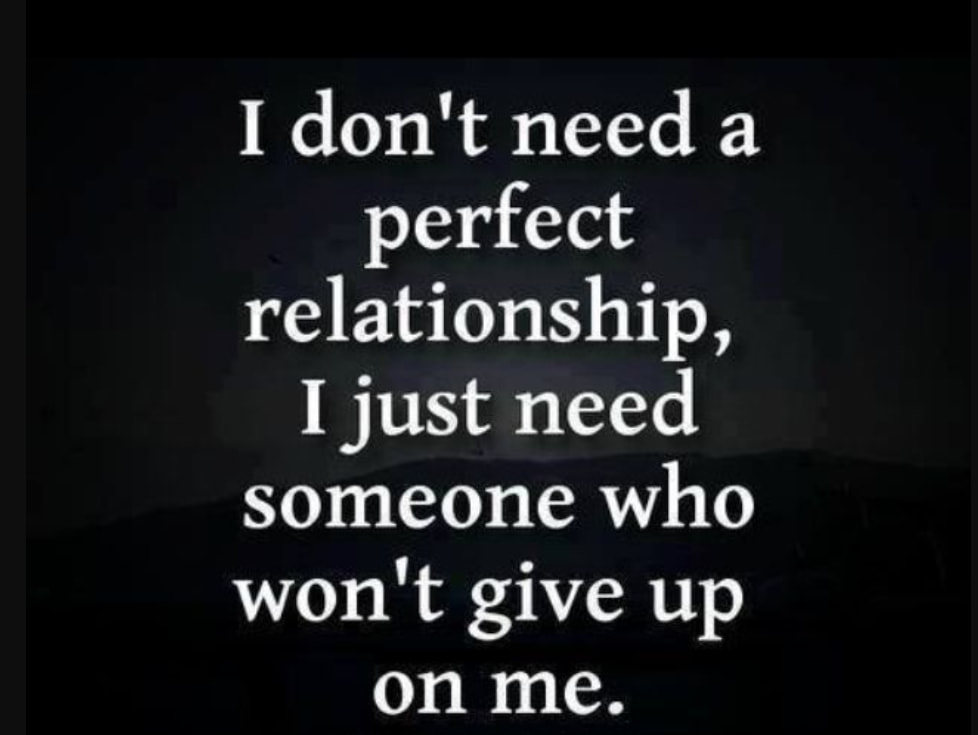

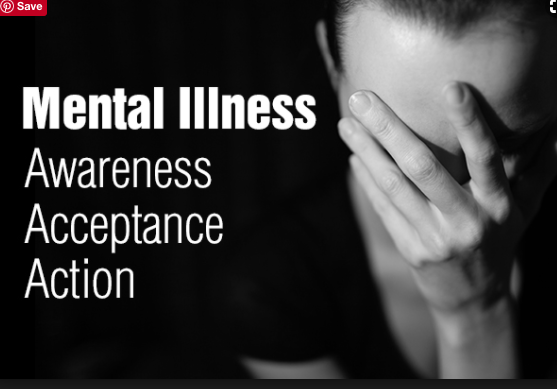
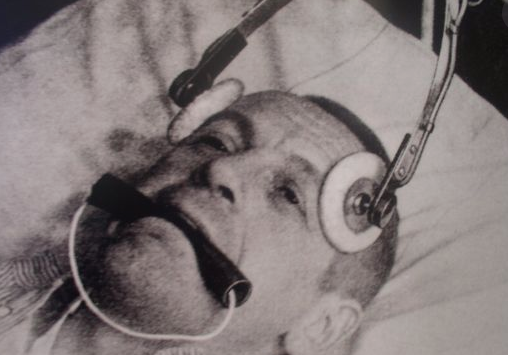
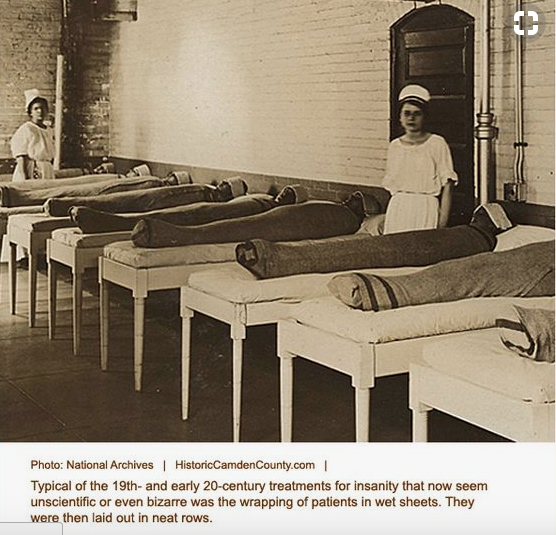

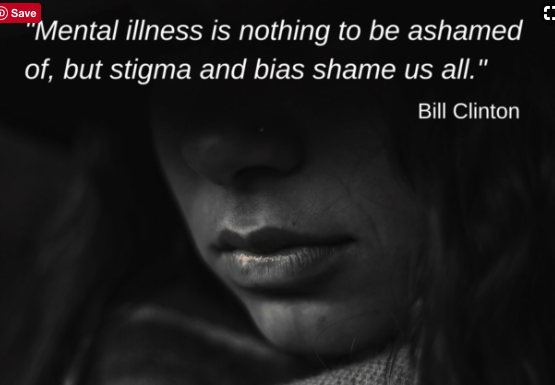
 RSS Feed
RSS Feed